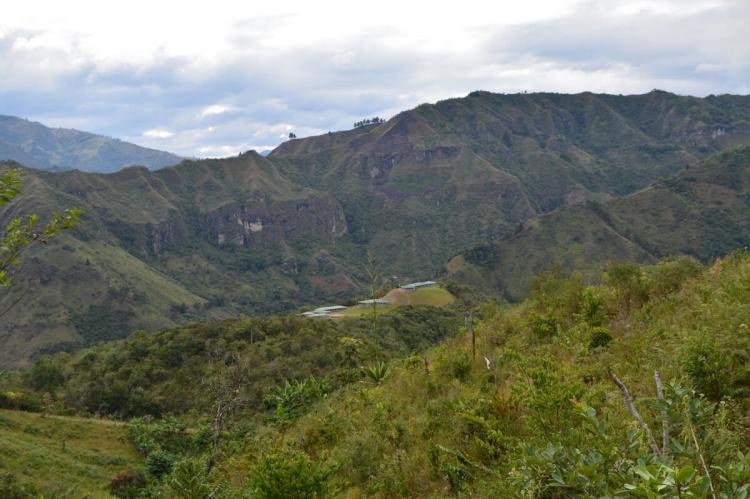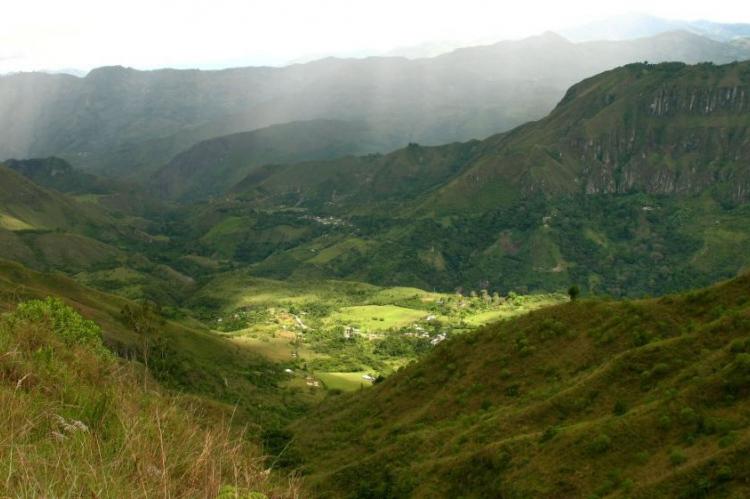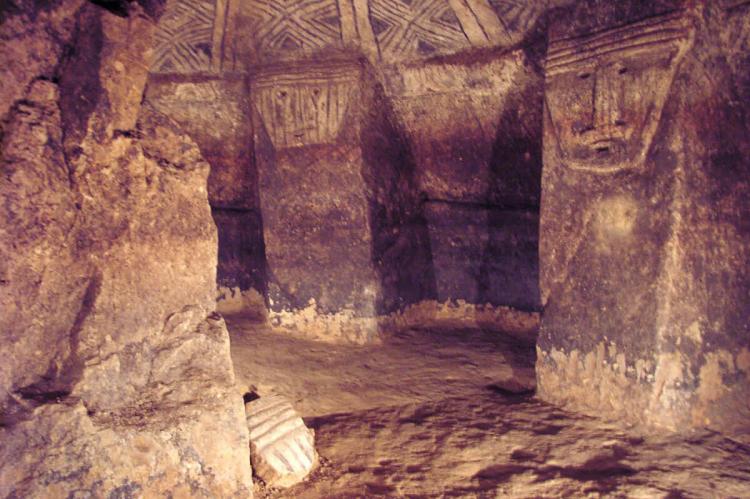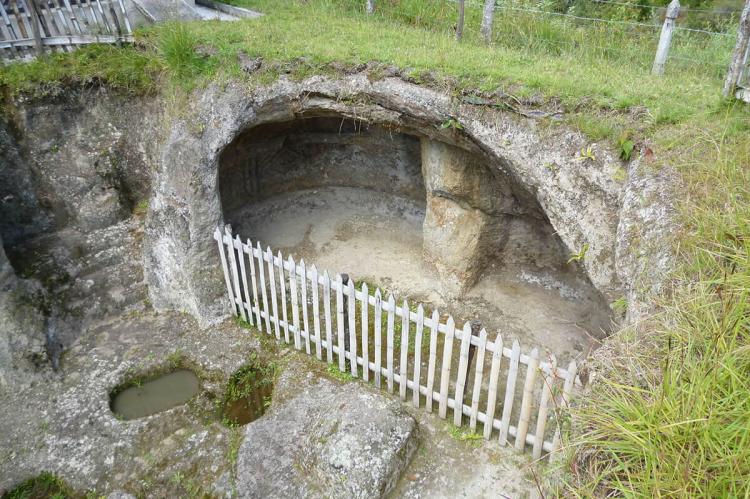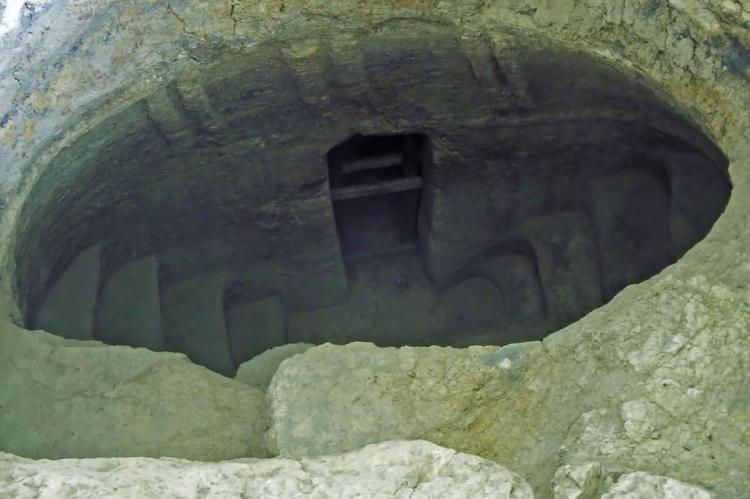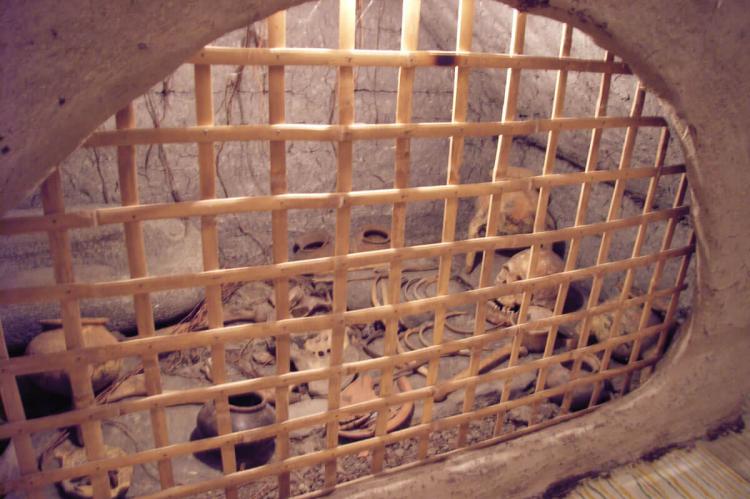Tierradentro: Unveiling Colombia's Ancient Mysteries
Tierradentro is a National Archaeological Park nestled within the peaks of the Cordillera Central in southwestern Colombia. It is a testament to Colombia's rich cultural heritage, offering a glimpse into the enigmatic world of pre-Columbian civilizations that flourished in the region.
Tierradentro: Unveiling Colombia's Ancient Mysteries
Located amidst the rugged terrain of southwestern Colombia, nestled within the imposing peaks of the Cordillera Central of the Colombian Andes, lies a treasure trove of ancient wonders: the National Archaeological Park of Tierradentro. Designated as a UNESCO World Heritage Site in 1995, Tierradentro is a testament to the rich cultural heritage of Colombia, offering a glimpse into the enigmatic world of pre-Columbian civilizations that flourished in the region.
A Legacy of the Ancients
Tierradentro bears witness to one of Colombia's ancient pre-Columbian cultures, which thrived from around 200 BC until the 17th century AD. The archaeological park, scattered across a few square kilometers, comprises four main areas: Alto de San Andrés, Alto de Segovia, Alto del Duende, and El Tablón. Additionally, the site of Alto del Aguacate, though outside the park boundaries, holds significant archaeological importance.
The Marvels of Monumental Shaft Tombs
At the heart of Tierradentro lie the monumental shaft tombs, or hypogea, carved into the volcanic tuff beneath hilltops and mountain ridges. These structures, some measuring up to 12 meters (40 feet) wide and 7 meters (23 feet) deep, represent a remarkable feat of ancient engineering. Constructed between 600 and 900 AD, they served as collective secondary burials for elite groups.
The architectural complexity of the hypogea is truly astounding, with chambers resembling the interior of large houses. Intricate carvings in the tuff adorn the staircases, leading to lobbies and burial chambers meticulously planned with core and perimeter columns. The walls of these chambers are decorated with polychrome murals featuring elaborate geometric, zoomorphic, and anthropomorphic designs.
Unraveling Mysteries Below Ground
Tierradentro boasts the largest concentration of pre-Columbian monumental shaft tombs in the Americas, showcasing the ingenuity and artistry of its ancient inhabitants. Smaller hypogea, ranging from 2.5 to 7 meters (8 to 23 feet) deep, contain oval floors and chambers adorned with statues, pottery, and fabrics. More prominent examples include chambers up to 12 meters (40 feet) wide, featuring free-standing central columns and decorated pilasters along the walls.
The hypogea, oriented towards the west with spiral staircases leading to central chambers, provide insight into the hierarchical social and political structure of Tierradentro's ancient society. The disposal of human remains within these tombs suggests the existence of chiefs with priestly functions, underscoring the complexity of the civilization that once thrived in the region.
Guardians of Stone: The Enigmatic Statues
In addition to the monumental shaft tombs, Tierradentro is renowned for its stone statues carved from volcanic rock. These statues, representing standing human figures with banded headdresses and various adornments, offer further insight into the cultural practices and beliefs of the ancient inhabitants. Depictions of felines and amphibious creatures further enrich the region's artistic legacy.
Conclusion
Tierradentro is a testament to the ingenuity and artistry of a lost civilization. While the hypogea have unveiled secrets about social structures and burial practices, many aspects of Tierradentro's pre-Columbian culture remain mysterious. As excavation and research continue, these ancient wonders promise to ignite the imagination and fuel our understanding of the past for years to come.
